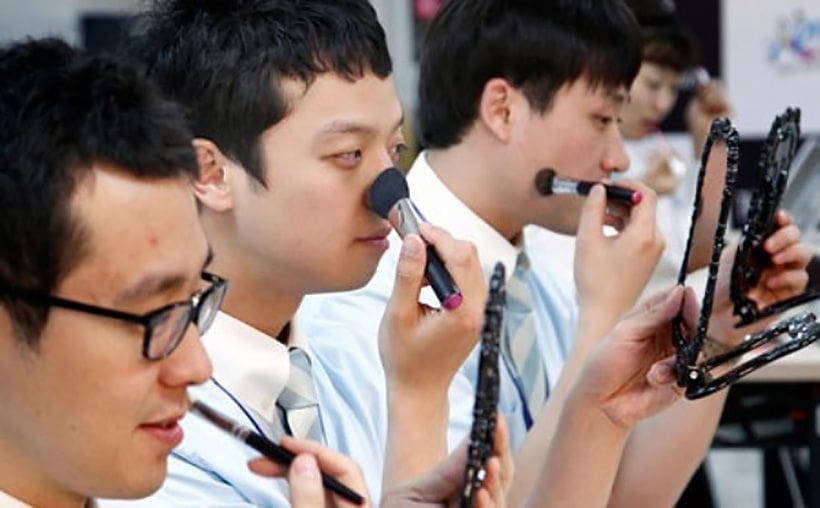Will the West embrace the South Korean male beauty product industry?

PHOTO: ‘V’ or Kim Tae Hyung from Korean band BTS
Over the past decade South Korean men have become the world’s biggest male spenders on skincare and beauty products. The market has grown by 44% in the country in the six years before 2017, according to Euromonitor.
This figure is even higher for Gen Z respondents (the ones born after 2000), with 58% saying they pamper themselves with “lengthy” beauty or grooming treatments at least once per week, nearly twice as much as South Korean men overall at 34%.
About three quarters of South Korean men undertake a beauty or grooming treatment at least once a week, according to a recent survey by GlobalData. How many men in the West are following these trends? A lot fewer.
According to Roald Maliangkay, director of the Korea Institute at The Australian National University, this phenomenon can be explained in part by the influence of K-pop, South Koreas massively popular music industry.
“I am struck by how many local young men are now emulating the look typical of Korean male idols. I saw many men in sharply cut outfits with perfectly groomed dyed hair and double eyelids (as a result of cosmetic surgery), and I even noticed a few men wearing some light makeup,” he said in a special report on CNN.
The origins of South Korea’s male beauty obsession are complex, however. Maliangkay’s 2010 study “The effeminacy of male beauty in Korea” highlights an alternative theory: that the rejection of traditional masculinity was in fact led by women as a backlash against severe gender inequality.
One of the main catalysts, his paper argues, was the 1997 Asian financial crisis. Unemployment across the country rose, but figures show that women were disproportionately affected.
“In the year following the crash, female employment fell by 8.2%, almost 3 percentage points more than the equivalent figure for men. Resentment over this and other workplace inequalities, as well as the rise of literature and film questioning traditional gender roles, led women to seek out softer male figures who had the potential to make the opposite sex feel more powerful.”
The trend may also result from pressure on men to compete in a tough job market, according to James Turnbull, a writer and lecturer based in the city of Busan, South Korea, who specialises in Korean feminism and popular culture.
“In this cut-throat environment, 20 and 30 somethings are all about improving their ‘specs’ with extra degrees, courses, internships, English-language qualifications and so on.”
Turnbull added that Korean companies routinely ask job applicants for photographs on their CVs.
Katherine Spowart, who runs the beauty blog SkinfullofSeoul, stressed that Korean men still face specific social pressures.
“Male beauty is generally much more accepted as a concept in South Korea, but it doesn’t relieve each gender of their traditional roles in mainstream culture. Gender roles are still fairly rigid, sexual choices other than heterosexuality are generally not talked about, and it’s a patriarchal culture.”
But now the West is fighting back in the pursuit of perfect brows and flawless skin. In September, Chanel released Boy de Chanel, its first cosmetics range for men. The line features eight shades of tinted foundation, a two-in-one brow pencil and brush, and a transparent matte lip balm.
Aiming to “write the vocabulary of a new personal aesthetic for men,” the French house piloted the collection in South Korea before making it available online to US shoppers last November.
But David Yi, founder of the US-based male beauty blog Very Good Light, says there are still huge challenges for beauty brands intending to woo men.
“There are still many, many years until makeup becomes widely accepted in the US. South Korea is so progressed when it comes to beauty,” he added. “They have a makeup look solely for men that’s completely different from women, which is what K-pop male stars subscribe to.”

Excerpts from a CNN article HERE.
Latest Thailand News
Follow The Thaiger on Google News:


























